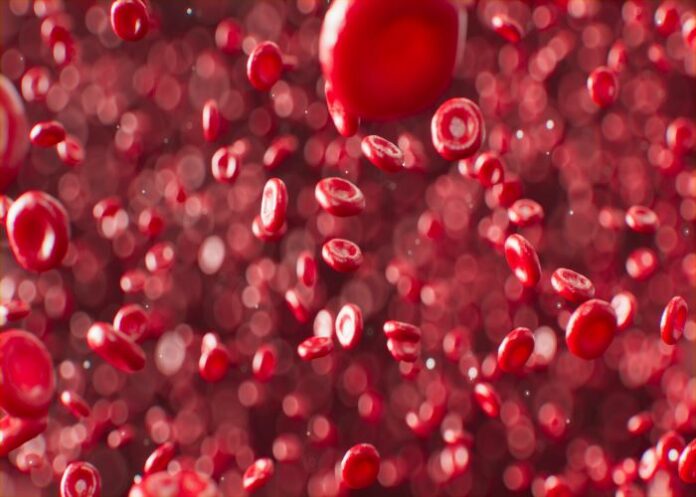A “transformational” therapy has effectively cured people with the bleeding disorder haemophilia B, say British doctors, adding that this has the potential to “revolutionise” the lives of haemophiliacs in the future.
The treatment corrects a genetic defect that leaves people's blood struggling to clot and stop bleeding.
Elliott Mason, who was part of the trial testing the therapy, says his life now feels “completely normal,”, reports BBC News.
From the day he was born, he was unable to make enough of a crucial protein called clotting factor IX. When you cut yourself and it scabs over, clotting factor IX is one of the proteins that stops the bleeding.
He grew up “anxious of getting hurt”, and teachers “wrapped me in bubble wrap”. The sport he wanted to play, rugby, was completely off limits.
At one point, he had factor IX injections every other day to prevent a deadly bleed. But he managed to stay healthy, unlike many others with haemophilia who face severe damage to their joints from the bleeding.
“We have a lot of young patients in excruciating agony and there’s nothing we can do to reverse the joint damage,’ said Professor Pratima Chowdary, from the Royal Free Hospital and University College London.
Gene therapy
Elliot was given an engineered virus that was filled with the instructions for manufacturing the missing factor IX. The virus acts like a microscopic postman that delivers the blueprints to the liver, which then starts producing the clotting protein.
It was a one-off infusion that took about an hour to drip into Elliott’s body.
He recalls being “astonished” to see the amount of factor IX in his blood go from only 1% of normal levels to normal.
The findings, published in the New England Journal of Medicine, showed nine out of 10 patients given the therapy no longer needed their clotting factor IX injections.
“I’ve not had any treatment since I had my therapy… it feels quite miraculous,” said Elliott.
He now enjoys skiing and riding a motorbike.
“We’re very excited by the results,” said Chowdary.
She said there was a “transformational impact” about a year after the therapy, when suddenly people realised: “I don’t need to worry about my haemophilia at all.”
This trial is the latest in a series of breakthroughs in treating both haemophilia A and B.
Chowdary is now “looking for my next job”, as curing haemophilia will be a reality for most of the adults in the next one to three years.”
But there are still questions which need answering:
How much will the gene therapies cost? Current clotting factor injections can cost between £150,000 and £200,000 per patient per year.
How long will the treatment last? Studies suggest it will be at least a decade, but nobody knows for sure.
How early in life can the therapy be given? Before the age of 12, the liver is still developing, but scientists hope it will be an option from then on.
Clive Smith, chairman of the Haemophilia Society, said: “These initial data are promising, but we continue to monitor gene therapy trials closely and cautiously, as with all new treatments.
“If they are shown to be safe and effective, NICE (National Institute for Health and Care Excellence) and the NHS must work together to make them available.”
Study details
Phase 1–2 Trial of AAVS3 Gene Therapy in Patients with Haemophilia B
Pratima Chowdary, Susan Shapiro, Mike Makris, Gillian Evans, Sara Boyce, Kate Talks, Gerard Dolan, Ulrike Reiss, Mark Phillips, Anne Riddell, Maria R. Peralta, Michelle Quaye.
Published in The New England Journal of Medicine on 22 July 2022
Abstract
Background
FLT180a (verbrinacogene setparvovec) is a liver-directed adeno-associated virus (AAV) gene therapy that uses a synthetic capsid and a gain-of-function protein to normalise factor IX levels in patients with haemophilia B.
Methods
In this multicentre, open-label, phase 1–2 trial, we assessed the safety and efficacy of varying doses of FLT180a in patients with severe or moderately severe haemophilia B (factor IX level, ≤2% of normal value). All the patients received glucocorticoids with or without tacrolimus for immunosuppression to decrease the risk of vector-related immune responses. After 26 weeks, patients were enrolled in a long-term follow-up study. The primary end points were safety and efficacy, as assessed by factor IX levels at week 26.
Results
Ten patients received one of four FLT180a doses of vector genomes (vg) per kilogram of body weight: 3.84×1011 vg, 6.40×1011 vg, 8.32×1011 vg, or 1.28×1012 vg. After receiving the infusion, all the patients had dose-dependent increases in factor IX levels. At a median follow-up of 27.2 months (range, 19.1 to 42.4), sustained factor IX activity was observed in all the patients except one, who resumed factor IX prophylaxis. As of the data-cutoff date (September 20, 2021), five patients had normal factor IX levels (range, 51 to 78%), three patients had levels from 23 to 43%, and one had a level of 260%. Of the reported adverse events, approximately 10% were related to FLT180a and 24% to immunosuppression. Increases in liver aminotransferase levels were the most common FLT180a-related adverse events. Late increases in aminotransferase levels occurred in patients who had received prolonged tacrolimus beyond the glucocorticoid taper. A serious adverse event of arteriovenous fistula thrombosis occurred in the patient with high factor IX levels.
Conclusions
Sustained factor IX levels in the normal range were observed with low doses of FLT180a but necessitated immunosuppression with glucocorticoids with or without tacrolimus.
BBC News article – Transformational therapy cures haemophilia B (Open access)
See more from MedicalBrief archives:
As inquiry reopens, ITV spotlights UK’s ‘biggest treatment disaster’
Inquiry: Infected blood given to UK patients after safe-date cutoff?
New drug a breakthrough in treatment of haemophilia

